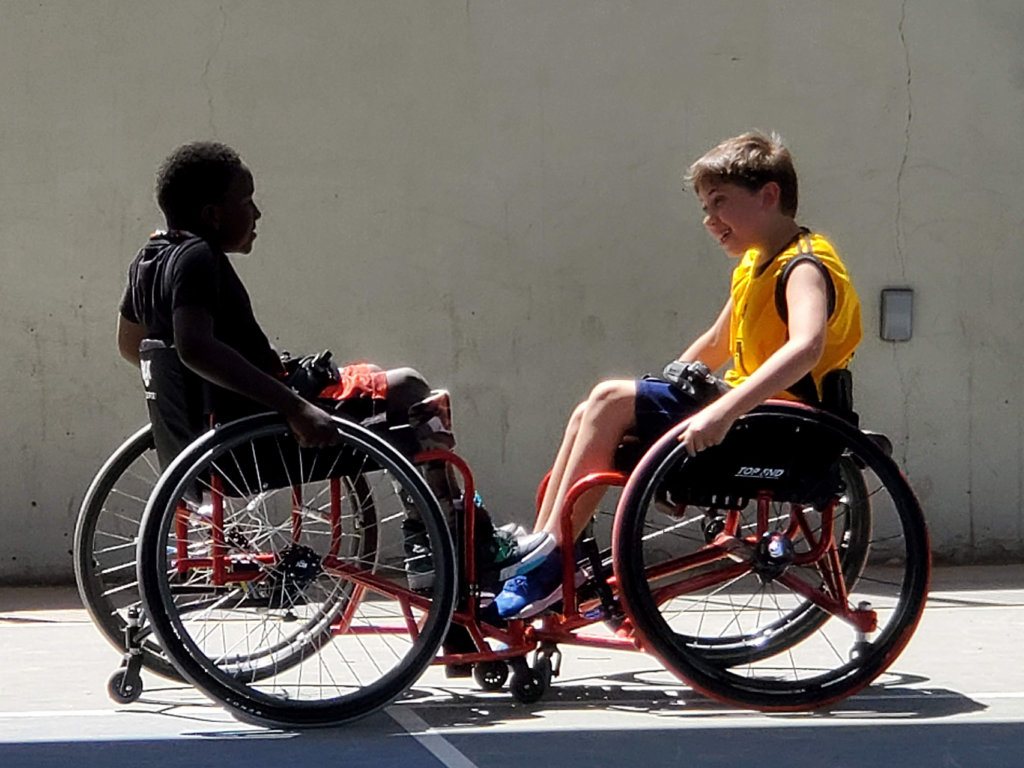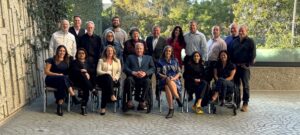
When I was little, I remember being taught the nursery rhyme, “Sticks and stones may break my bones, but words will never hurt me.” My younger brother’s favorite was, “I’m rubber and you’re glue. Everything you say bounces off me and sticks on you.” Well, although these may have been go-to strategies for parents in the 70s and 80s, they no longer apply. Words do hurt and, if you hear something enough times, it’s impossible to just let them bounce off. Words impact how we feel about ourselves and how others define who we are as people. Given the influence this has on our mental health and wellbeing, I have recently reflected on some words and phrases that are newer to my everyday vocabulary and carry a lot of power.
Ableism—This is a big one. Once you are sensitized to it, you will see it everywhere. Simply, ableism is discrimination in favor of able-bodied people. People with disabilities are often underestimated or devalued and their disability is looked at as something that needs to be fixed. There is so much implicit bias in our culture, so to truly combat ableism, people with a disability must have a seat at the table for key decisions. When their lived experience and perspectives are a part of the development of an idea from the start, the impact is much greater. Although I want to believe that people are well intended, most communities weren’t built with people with disabilities in mind and it’s time to evolve.
Inclusivity—It is easy to say “we are inclusive” but to put inclusivity into action, we must be proactive. It can take time, resources, and a hefty dose of humility. Acknowledging that you are not as “inclusive” as you thought can be tough, but that’s NOTHING compared to the hurdles people living with a disability face every day. A great place to begin is for your organization to create an inclusivity policy that provides equal opportunity for people who may have been marginalized in the past. Make an effort to enhance diversity and ensure an employee’s opportunity regardless of background.
People-First Language—This might be a small shift in habit, but it is important to be aware of how meaningful it is. By using people-first language, we put the individual before the description (diagnosis, gender, race, etc.) and describe a characteristic of the person and not what the person is. Saying someone is a spinal cord injured woman is not putting the human being first. Respecting the individual would be to put them first and state, she is a woman with a spinal cord injury. I understand that this can be a little tricky when using the term Disabled—some prefer to use ‘Disabled people,’ referring not to medical impairment, but to barriers set up by society that limit people. This language can serve to bring a diverse group of people together and communicate shared experience with the goal of creating social change.
There are other words or ideas that were once new and are now a part of how I make decisions. Are we creating an environment with equity versus equality? If it’s equal, I have given the same 6” box to everyone to help them see over the fence, no matter how tall you are or if you’re sitting in a wheelchair. If I am focused on equity, then I’d provide each person with a box tall enough, specific to their needs, to see over the fence. What about the word trust? When making decisions for the Neilsen Foundation, we build trust by seeing and working with our grantees as our partners, recognizing that accountability must go both ways. This helps us grow relationships and foster collaboration. In the world of applications, reports, and budgets, operationalizing how organizations can trust each other can be difficult on many levels. It requires a change in thinking, and then, a change in behavior. I hope you will think of how good it felt the last time someone trusted you and find a way to apply that to your institutional or corporate relationships.
I consider myself to be a thoughtful ally. I genuinely care about the people in my community, I am authentic in my interactions, and I do my best to make values-based decisions. But that is not enough. In the process of writing this piece, I’ve learned more about things I didn’t know I didn’t know. In 2024, I encourage you to look harder at the words you’re hearing and find opportunities to let these ideas influence your behavior. No doubt, there is a place where you can use your voice, power, or position to help move us forward in fighting Ableism, building equity and trust, and empowering relationships. So, let’s examine those nursery rhymes. How about “Itsy Bitsy Spider?” Resiliency at its best.
On behalf of the entire Neilsen Foundation family, we wish you a happy and healthy holiday season!


Kym Eisner, Executive Director